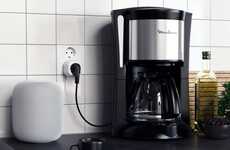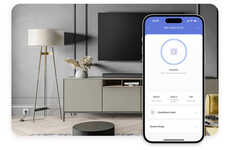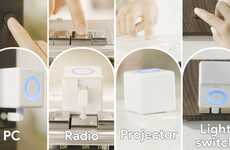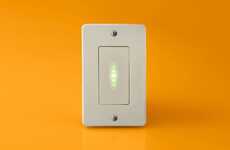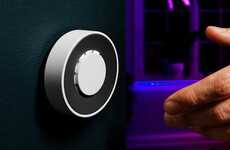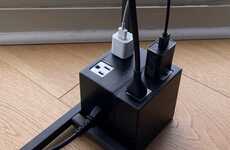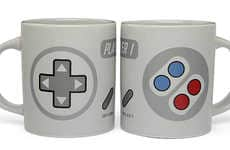
The 'Wireless Smart Socket' Controls Homes from Afar
References: fraunhofer.de & gizmag
The Munich and Kaiserslautern-based Fraunhofer Institute has developed the 'Wireless Smart Socket,' another breakthrough in digitally-controlled homes. The ability to control lighting, television and virtually any device from afar has been highly sought after, and has been facilitated by the development of smartphone technology.
Machines plugged into the Wireless Smart Socket can be controlled via smartphones or laptops, no matter the location. The electrical circuits operate by way of an IPv6 device, one that is a part of a growing at-home automation movement.
Aside from its obvious practical implications, the Wireless Smart Socket is also ecological. Turning lights or switches off at any point in the day will be essential to the conservation of energy.
Machines plugged into the Wireless Smart Socket can be controlled via smartphones or laptops, no matter the location. The electrical circuits operate by way of an IPv6 device, one that is a part of a growing at-home automation movement.
Aside from its obvious practical implications, the Wireless Smart Socket is also ecological. Turning lights or switches off at any point in the day will be essential to the conservation of energy.
Trend Themes
1. Smart Home Automation - The development of smartphone-operated circuits for home automation presents an opportunity for companies to provide convenient and efficient systems that can control multiple devices from a single source, with endless possible applications.
2. Cloud-based Ipv6 Infrastructure - As home automation and smart devices continue to proliferate, cloud-based infrastructure that utilizes IPv6 devices opens up disruptive possibilities for any company that can implement interconnected systems that would consist of virtually limitless applications.
3. Energy Conservation Technology - Wireless Smart Socket presents the opportunity for companies to develop innovative energy conservation technology that can be utilized across various industries to save energy and reduce cost of operations.
Industry Implications
1. Real Estate - Wireless Smart Socket technology can optimize energy consumption and lead to reduced energy bills for homeowners. Furthermore, property managers can use this technology to integrate the energy-saving feature as a selling point for their properties.
2. Consumer Electronics - As more consumers integrate smart devices into their lives, opportunity lies in developing products and services that enable seamless IoT experience even while on the move. This could include developing hardware and software solutions to solve the occasional compatibility issue between different IoT devices.
3. Manufacturing - Manufacturers of home appliances and electronic devices could integrate this technology into their products to reduce the products' carbon footprint. This could involve developing innovative products that prioritize efficiency by integrating smart technology.
3.8
Score
Popularity
Activity
Freshness

